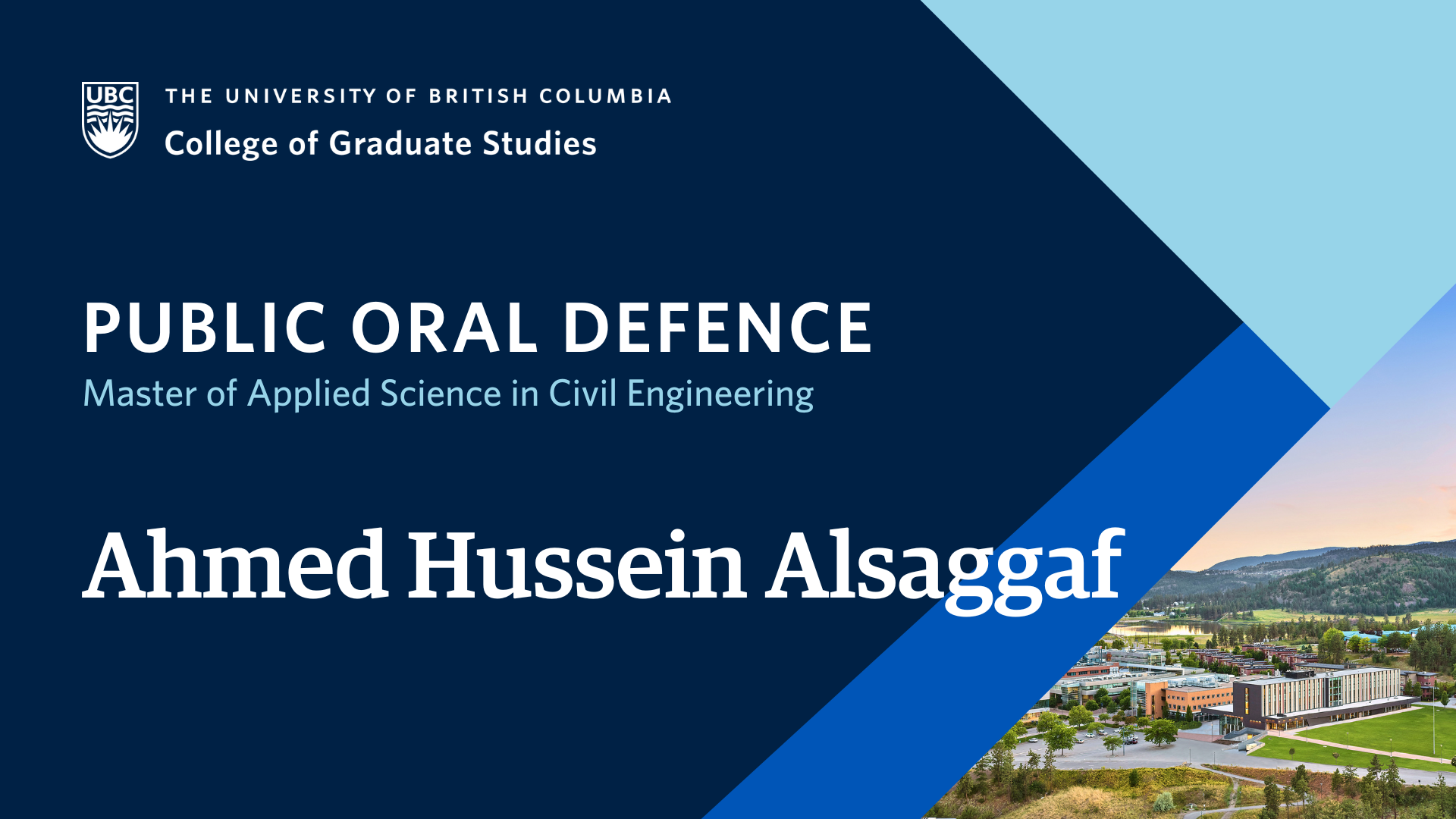
- This event has passed.
Thesis Defence: Using Ensemble learners, and deep learning for analyzing the compressive strength of geopolymer concrete
November 19, 2022 at 8:00 am - 5:00 pm

Ahmed Hussein Alsaggaf, supervised by Dr. Sumi Siddiqua, will defend their thesis titled “Using Ensemble learners, and deep learning for analyzing the compressive strength of geopolymer concrete” in partial fulfillment of the requirements for the degree of Master of Applied Science in Civil Engineering.
An abstract for Ahmed’s thesis is included below.
Defences are open to all members of the campus community as well as the general public.
If you would like to attend this virtual defence please contact the supervisor at sumi.siddiqua@ubc.ca to receive a zoom link.
ABSTRACT
Geopolymer is a strong candidate to replace ordinary Portland cement as a binder for construction, and geotechnical applications. The primary application of OPC is the most used construction material that is concrete. The compressive strength is a primary property of concrete. This mechanical property distinguishes concrete as it significantly higher than other properties such as the tensile strength. There are two primary constituents of a geopolymer which are a solid precursor, and an alkali activator solution. There are other parameters influencing the degree of reaction between these two constituents such as precursor composition, curing conditions, aggregate proportion, and testing period. Researchers tried to measure the correlation between the compressive strength and geopolymer synthesis parameters. The used methodologies include the conventional method of testing of a parameter with the others being fixed. There were disagreements about the degree of influence of each variable that made it necessary to use multivariate analysis. Taguchi method, and some machine learning models utilize multivariate systems to measure variable influence, and design optimization. Disagreement were still found between studies utilizing these methods. This study analyzes data from peer-reviewed journals from different places around the world. The analyses involve preprocessing of synthesis parameters, and the compressive strength of geopolymer concrete. Then, different supervised learning algorithms including, MARS, ensemble learning, and deep learning were used for building robust strength prediction models. Hyper-parameter tuning is performed for each model to improve the predictive accuracy. Ten-fold cross validation was used to ensure bias reduction for models. The effect of the chosen hyper-parameters on the performance of the model is analyzed in terms of the quality of training, and generalization. Further evaluation was performed with sensitivity analyses to measure the influence of synthesis parameters as explanatory variables. This step is followed by Training models with a selected number of synthesis parameters divided into subsets to see the reflection on the accuracy. These subsets of variables are chosen based on variable influence analysis, and then used to build refined models. These refined models are built to see the effect of reducing variables on the predictive accuracy with different algorithms.